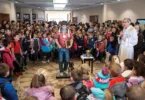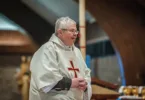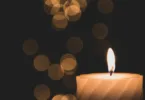
by Susan Fotovich McCabe
Special to The Leaven
KANSAS CITY, Kan. — If a picture is worth a thousand words, how precious must a multimedia version of a valuable Catholic resource be to the deaf and hard of hearing community?
That resource — the Youth Catechism (YouCat) — is now available in the form of videos, translated into American Sign Language (ASL), for Catholics around the globe.
The new resource is due, in part, to the leadership of Katie Locus, the consultant for the Archdiocese of Kansas City in Kansas deaf ministry.
This exciting new development has been a long time coming for the deaf community, according to Locus. After more than a year of planning, the ASL version of the YouCat has since posted 63 videos that translate 132 questions into sign language. All are accessible on YouTube, Facebook and online at: www.archkcks.com/home/asl-youcat.
“This is the first time any catechism has been translated into a deaf person’s native language,” Locus said. “ASL is the natural language for deaf people and often English is considered their second language.
“Reading the catechism can be very daunting to anyone — but especially to people who might struggle with English,” she said. “The church has translated documents and resources into many languages, but never ASL. The YouCat project finally makes the catechism accessible to the deaf. Now, deaf people can learn not only what we believe as Catholics but also why we believe what we do.”
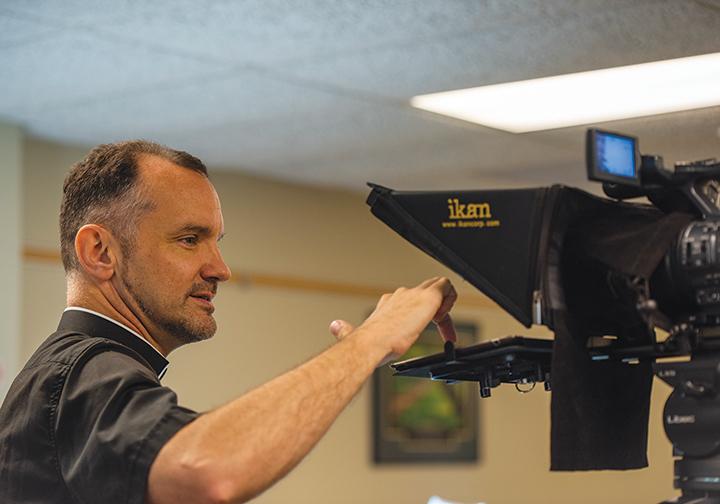
With another 395 questions to translate, Locus said the videos also feature spoken English and captions. This allows hearing parents and family members to watch the video with their deaf or hard-of-hearing child and everyone can learn together.
Each video follows a Q&A format from the YouCat book, including the excerpt from the Catechism of the Catholic Church (CCC) and its elaboration and application. Locus said the elaboration of the CCC might differ from the elaboration in the book itself, in order to address deaf culture and better relate to deaf viewers. To date, it has gained nearly 14,000 views on YouTube and other social media.
The idea to translate originated with Locus’ predecessor, Pat Richey, and co-worker Joan Macy. However, it seemed overwhelming at the time. Several years ago, Locus revisited the idea at the urging of visiting missionary Katherine Resendez. With the support and encouragement of Father Scott Wallisch, chaplain for deaf ministry, the idea moved forward.
The project also received support from Archbishop Joseph F. Naumann and the YouCat Foundation through Ignatius Press. The National Catholic Office for the Deaf (NCOD) and Our Sunday Visitor (OSV) provided financial support to seed the project.
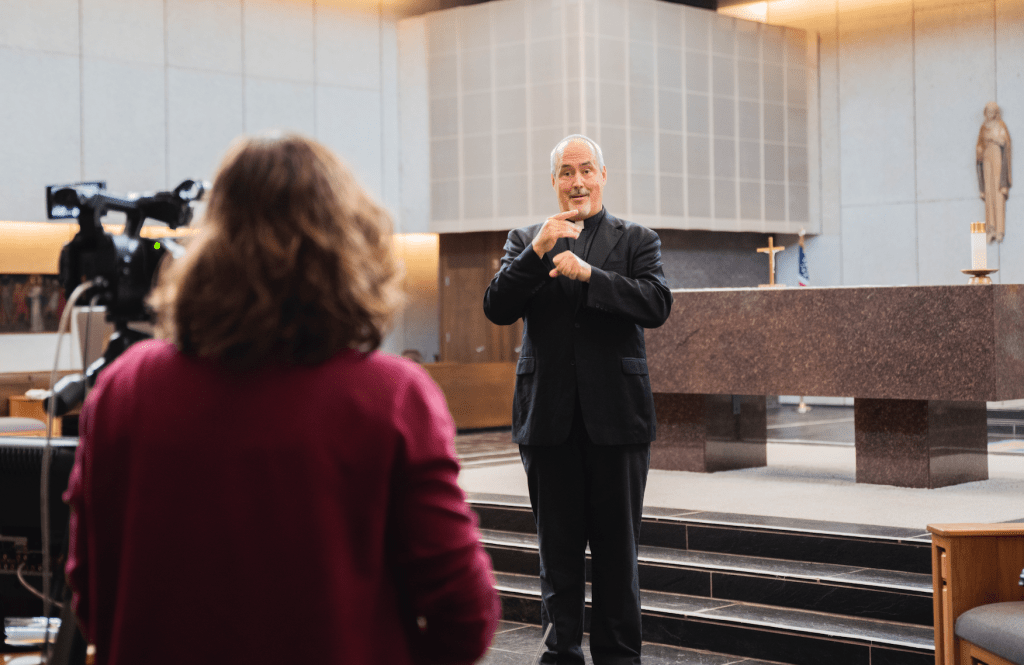
A team of people from throughout the United States now assist in the filming of the questions and answers for each video.
“The process of getting the videos ready is lengthy but we are committed to accuracy and receiving episcopal approval before anything is posted,” Locus said. “First, the material must be translated from English into ASL, then a filming date is set for production. Two priests who are fluent in English and ASL review each script and video to ensure the accuracy of the ASL translation and Catholic theology.
“Once vetted, Archbishop Naumann provides his approval for it to be posted. If at any step in the process we find the slightest possibility of causing confusion for the lay faithful through the type of information shared or the way the information is shared through ASL, the transcript and/or the video is fixed and redone.”
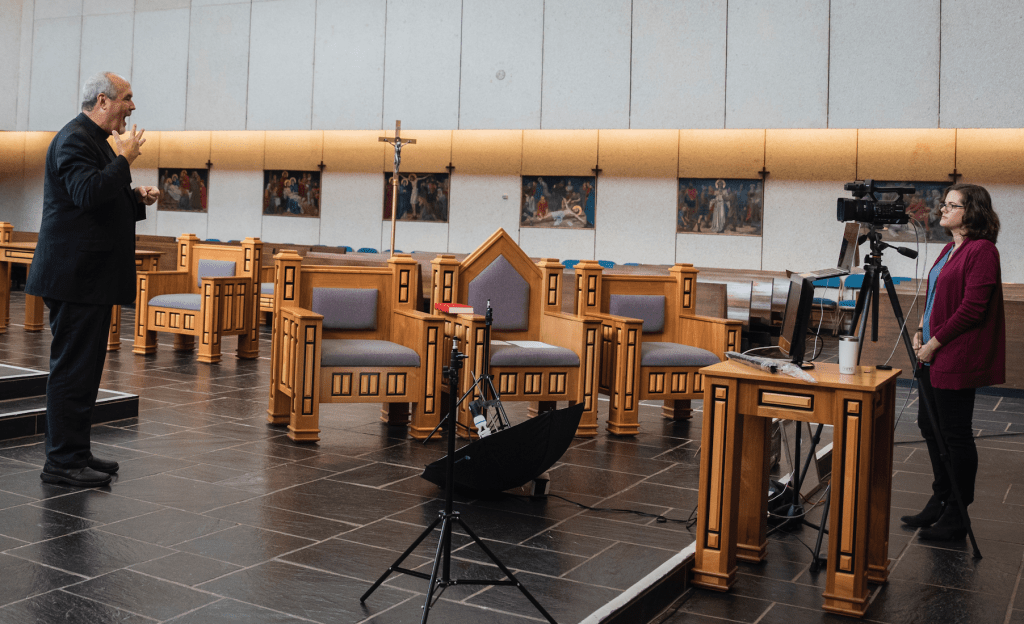
Roberta Westerman of St. Paul Parish in Olathe has been deaf since birth. With the availability of the ASL YouCat, she said she feels “more inspired and enthusiastic” about her faith. She also supplements her Catholic faith through a Bible study led by Father Wallisch.
Similarly, Tammy and Matt Gwynn, also of St. Paul Parish, feel renewed by the availability of the ASL YouCat. Both are deaf and raising hearing children.
“In the Scriptures, Jesus sent 12 disciples in pairs out into the world and told them to only bring a walking stick and the clothes on their backs. Matt is my pair and these YouCat videos are like my walking stick,” Tammy said. “It takes us further than we could have gone before.”
“All of my friends love to watch the clips,” she added, “seeing and understanding the teachings of the church in ways they never have before. It is hard to evangelize alone, but you can share any of the YouCat videos with anyone willing to watch them, and help them understand the faith better.”

To date, Locus has received positive feedback not only from the deaf community in the archdiocese but from throughout the United States to what they call “a game changer.”
Locus, who was born deaf as a result of a virus she contracted while in utero, said having this resource would have been valuable in her youth.
“I feel that if this had been available earlier in my life, those videos would have helped me to deal with some difficult situations where I had to explain my faith to people who felt Catholic teachings were oppressive or discriminatory,” Locus said. “There were many situations where I didn’t know exactly how to explain why the Catholic Church taught what she did in regard to certain controversial topics.
“As a result, I kept finding myself in hostile situations without having all the information I needed to defend my faith and the church. Even if the videos had been available back then and I still wasn’t able to dispel all of the misunderstandings, I would have felt more confident in my faith and in my responses.”
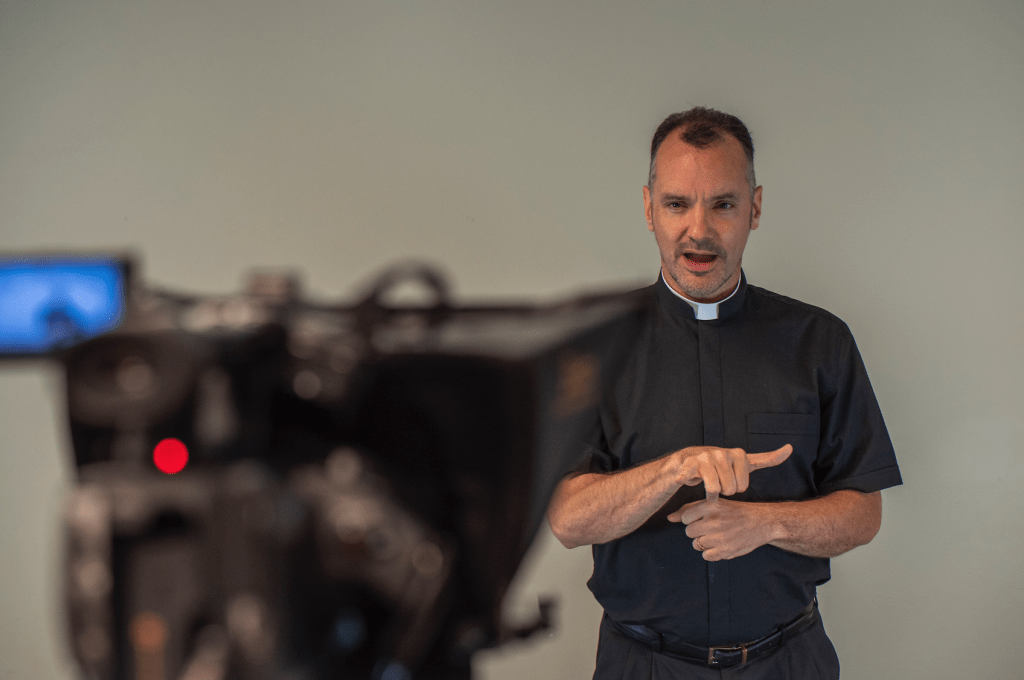
The ASL YouCat project is now looking for volunteers to spread the word about the resource. Locus is asking individuals to repost the videos on their personal social media and to talk it up among their friends. The project also welcomes financial donations to defray production costs. Donations can be sent to: Office of Deaf Ministry at 21650 W. 115th Terr., Olathe, KS 66213.
“I may not know exactly who needs to see these videos or exactly what fruits will come from this, but I know God is using this project to reach all kinds of people — deaf or hearing, Catholic or not Catholic,” Locus said.

